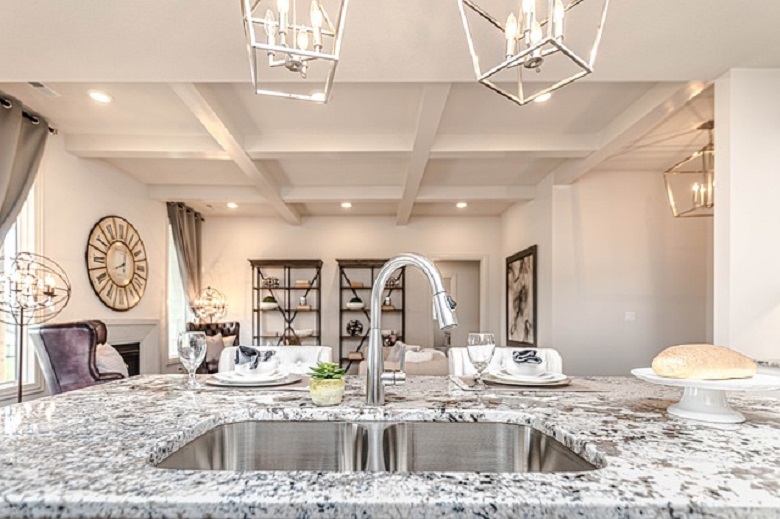There are a number of different stones that are popular for kitchen countertops. Each material has its own pros and cons, and this guide should highlight an unbiased review of each so that you have all the information you need to choose the right material for your home.
Granite
If budget is no problem, world granite is usually the top choice. It looks incredibly luxurious, and with the right supplier, like World Stone Group, you can find the perfect style and color to suit your kitchen seamlessly.
Pros
Granite is heat resistant, making it great for around the cooking area. It’s very strong, long-lasting, and can add serious value to your house’s price tag.
Cons
Of course, granite is quite expensive, though prices are slowly coming down. You’ll also need to remember to reseal the countertops every few years to keep the granite intact.
Soapstone
This dark grey, silky smooth stone is a common alternative for granite. It’s often a good choice for period homes, as it develops an antique-style patina over time.
Pros
Soapstone is heat and stain-resistant. Damage can often be sanded out to return the stone to its former glory.
Cons
The stone may naturally darken over time, which does need to be considered when choosing a complimenting palette. Soapstone countertops also need maintenance, as they should be treated with mineral oil from time to time. Although it is fairly scratch-resistant, damage can occur.
Marble
Marble creates a beautifully unique style for the home that is simply like no other. It’s no secret that marble doesn’t come with a friendly price tag. When using marble in the kitchen, it is often used in smaller areas like a baking center or island to keep costs down.
Pros
Marble is moisture and heat-proof which lends itself nicely to the kitchen setting. If you can afford to splurge on countertops, it can significantly increase the value of your home.
Cons
Although marble is resistant to heat and moisture, it can be prone to staining and scratching – and you can bet repairs don’t come cheap. It’s also worth mentioning that there are now thousands of marble dupes on the market that look just as beautiful for a fraction of the cost.
Quartz
Quartz is available in a wide selection of styles and colors, making it massively versatile for kitchen design. This manufactured stone is deemed more eco-friendly, as the mineral is mixed with waste materials to create the desired finish.
Pros
Unlike natural stone, quartz doesn’t require much maintenance, such as sealing. You’re also much less likely to have imperfections creep up on the stone. Quartz is designed to be stain, heat, and moisture resistant, making it a great choice for around the sink, cooking, and other appliances.
Cons
Quartz can be quite expensive, and the worktops themselves are extremely heavy.
Concrete
For an incredibly modern style, concrete can be used to create uniquely shaped kitchen countertops and polished for a sleek finish.
Pros
Concrete can be tinted with different colors and creates a unique look for the home.
Cons
As concrete is porous, cracking can occur, and it does require sealing. In terms of house value, concrete is still deemed ‘industrial’ so may put buyers off.
Hopefully, this quick guide will have made you ‘porous’ for thought before choosing the right stone countertops for you.











Leave a Review